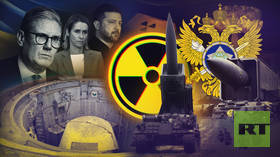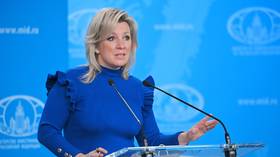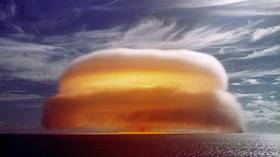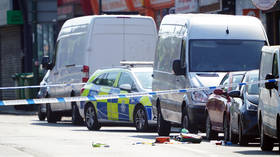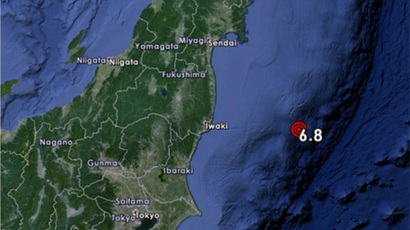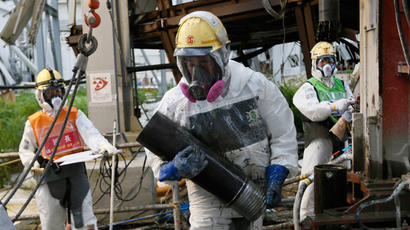Regulator greenlights reactor restarts in nuclear-weary Japan
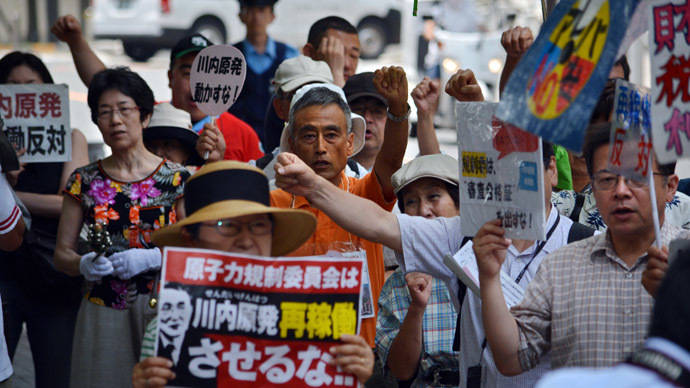
Japan’s nuclear watchdog has given a preliminary safety approval for restarting two nuclear reactors at the Sendai plant. A month is given for opposition groups to make their case against the move before a final decision is taken.
The reactors at Sendai power plant in Kagoshima Prefecture are two of 19 which Japanese electric utilities seek to restart and have applied for permission from the Nuclear Regulation Authority (NRA).
Japan shut down all of its nuclear reactors in the wake of the March 2011 quake and tsunami, which caused the Fukushima Daiichi plant disaster.
The NRA issued a 400-page report detailing safety measures in place at the Sendai plant on Wednesday. The evaluation took about a year, twice what the regulator initially expected.
"This is a step forward. After we get the safety decision we would like to move towards restarts with understanding from local [townships]," said Prime Minister Shinzo Abe, whose cabinet is advocating the reemergence of Japanese nuclear sector after the long slumber.
Pre-Fukushima Japan generated a third of its electricity at nuclear power plants and had to substitute energy deficiency through expensive imports. This was partial cause of a 23-month-long deficit of trade balance the country is undergoing.
Kyushu Electric, the utility operating the Sendai plant, posted three years of losses and asked for a bailout from a state-backed bank.
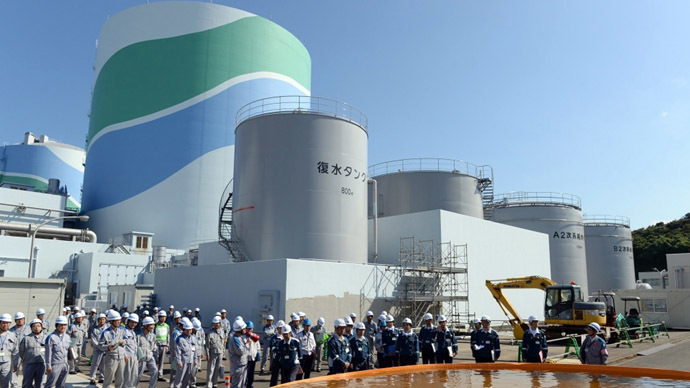
The new rules enforced by NRA, which was created in September 2012, include stricter standards for natural disaster protection. For instance the Sendai plant is able to withstand a 6-meter tsunami without harm, according to the report. Plants seeking approval from the regulator would need upgrades to infrastructure, including reinforced secondary control centers, auxiliary power and cooling systems and emergency filters for radioactive dust.
The regulator is bound to see criticism over the one-month public debate period. Even as it was prepared to release the report on Wednesday, a small groups of protesters shouting “Shame on you!” at the public meeting, with one demonstrator accusing the watchdog officials of being puppets of the nuclear industry.
Greenpeace criticized the approval, charging that NRA is "ignoring unresolved safety issues and rising public opposition."

The Sendai plant has "no effective evacuation plan for the populations in the region, in particular for the elderly, children and those in hospital, no functioning emergency-response center protected against radiation," the group said in a statement.
The regulator deflected the criticism from the environmental group, saying that evacuation plans are the responsibility of local governments rather than the NRA.
Nuclear fears remain strong in Japan ever since the Fukushima disaster proved to be the second-worst in history after Chernobyl, with the decommissioning process expected to last for years to come.
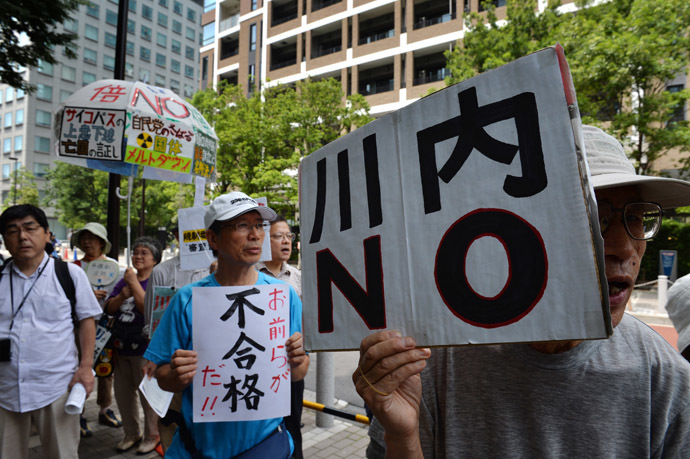
A petition against the planned restart of the Sendai reactors scored 30,000 signatures of residents in Ichikikushikino, a coastal town 5km from the facility. And a local assembly adopted a resolution calling for Sendai to be decommissioned rather than restarted.
In another example of opposition to Abe’s nuclear policies, a candidate backed by his Liberal Democratic Party lost Sunday election to anti-nuclear candidate for the position of Shiga prefecture governor.






